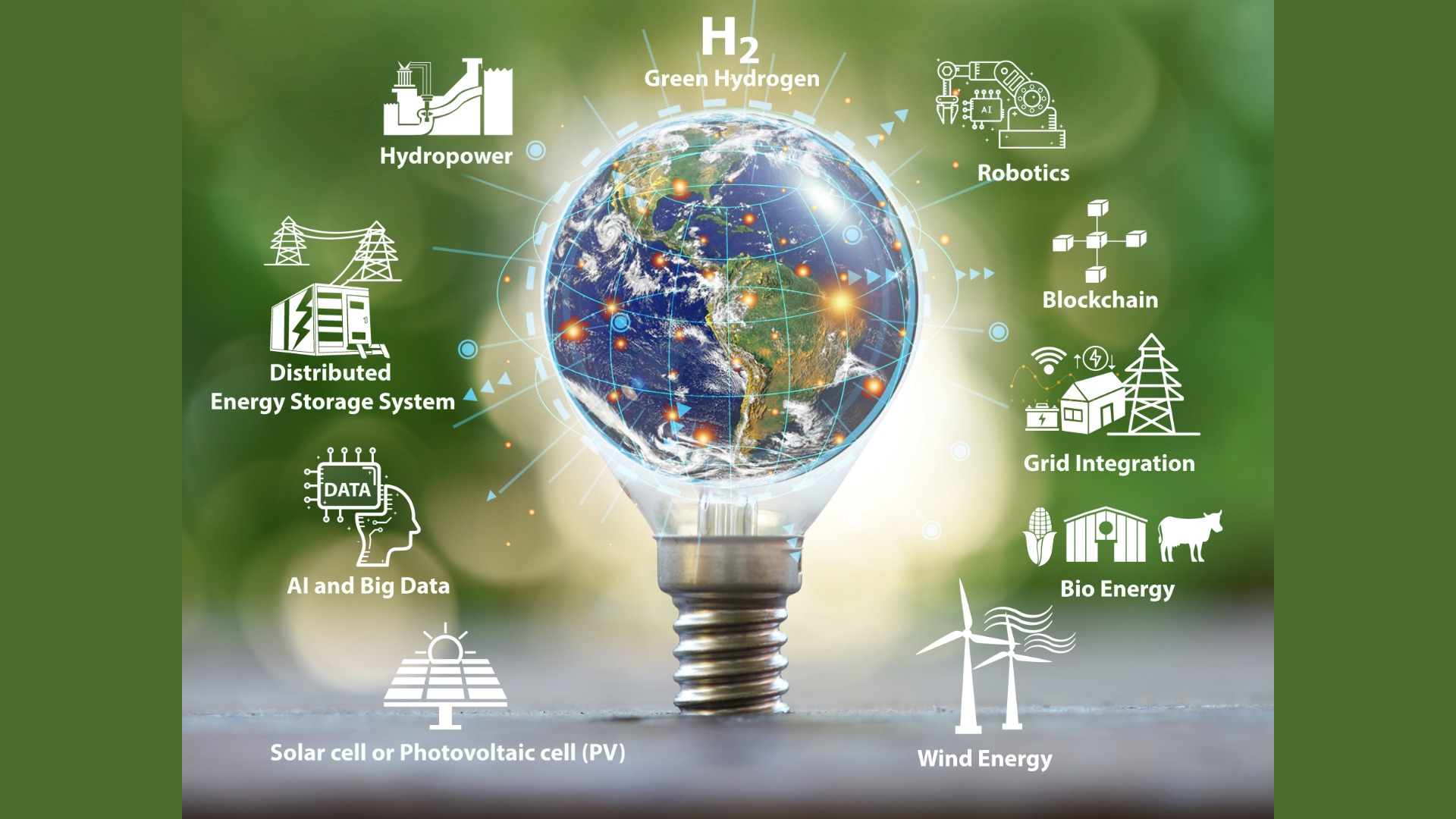Renewable energy procurement is advancing at a record pace as organizations seek greater budget stability, sustainability progress, and operational efficiency. Falling renewable technology costs, combined with evolving tax policies and corporate decarbonization mandates, are reshaping how large energy consumers secure supply and manage long-term exposure. The year ahead will push leaders to make strategic choices that align energy sourcing with financial discipline and growth targets.
Corporate buyers now account for a significant share of renewable capacity additions across major U.S. markets, driven by a desire to lock in predictable costs and demonstrate climate responsibility. At the same time, shifting federal incentives are compressing timelines and intensifying competition for viable projects. These conditions demand agility, robust analytics, and market intelligence that supports compliance and confidence at the board level.
The changing economics of renewable energy
The changing economics of renewable energy procurement reflect several key trends poised to influence decisions in 2026. Costs for solar, wind, and energy storage continue to decline significantly, making renewables increasingly cost-competitive with traditional fossil fuels. Recent data shows that over 90 percent of newly installed renewable capacity is cheaper than fossil energy alternatives, creating strong financial incentives for organizations to integrate renewables into their energy mix.
Wholesale electricity pricing and contract structures are also evolving. Power Purchase Agreements (PPAs), virtual PPAs, and retail renewable supply contracts are adapting to market demands, offering more customizable and risk-managed options for large energy consumers. These shifts help organizations balance price certainty with flexibility amid fluctuating energy markets.
Federal and state incentives remain a major factor driving renewable energy procurement strategies. While some policy uncertainty exists, ongoing support for renewables through tax credits and clean energy programs continues to encourage investment and market participation.
The role of data analytics
Data analytics plays an essential role in modern renewable energy procurement, transforming how organizations forecast price trends, hedge against volatility, and optimize timing. Advanced analytics tools enable decision-makers to identify patterns and predict market shifts, helping them avoid costly surprises and capitalize on favorable contract opportunities. Real-time data feeds and scenario modeling guide proactive procurement decisions, supporting cost containment and portfolio diversification.
Organizations using robust data platforms can consolidate market information, contract details, and operational metrics into unified dashboards that enhance visibility and speed. This analytical capability allows teams to assess risks accurately, respond to compressed timelines, and align energy strategies with broader sustainability and financial objectives. Strategic energy advisory partners like Kb3 Advisors use integrated platforms and precise forecasting to help clients transform complex markets into structured opportunities that deliver measurable advantages.
How renewable energy procurement strategies will evolve
Renewable energy procurement strategies are adapting to reflect the complex needs of organizations balancing financial performance and sustainability. Procurement decisions now involve integrating multiple energy sources into diversified portfolios that stabilize costs and enhance resilience while aligning with broader organizational emissions targets and compliance demands.
Integration of Renewables into Diversified Portfolios
Organizations are increasingly incorporating renewable energy sources into their broader energy portfolios to enhance resilience and optimize costs. This diversity reduces reliance on a single supply source and mitigates market fluctuations. Companies are blending solar, wind, and storage solutions with traditional market contracts and on-site generation, creating adaptable energy systems that align with operational needs and sustainability goals.
This hybrid approach allows organizations to tailor their energy procurement to meet specific operational and financial requirements. For example, on-site solar can provide resilience and reduce grid dependence, while market contracts offer price stability. Distributed energy resources and flexible load management help organizations adjust consumption patterns to optimize costs and reliability.
Importance of Aligning Procurement Decisions with Organizational Goals
Renewable energy procurement strategies are shifting toward stronger alignment with organizational sustainability initiatives. Procurement decisions are driven not solely by cost savings but also by corporate social responsibility, emissions reduction targets, and long-term value creation. This alignment ensures that energy strategies support broader business objectives, fostering trust among stakeholders and facilitating regulatory compliance.
Rise of Hybrid Sourcing Strategies
Hybrid sourcing combines traditional deregulated market contracts with on-site generation or distributed energy resources. This approach provides organizations with cost predictability and operational flexibility, allowing them to respond to changing market conditions while maintaining stable energy supply. The integration of multiple procurement methods creates a more resilient energy strategy that can weather market volatility and regulatory shifts.
Role of Kb3’s Proprietary Platform
Kb3’s platform enhances transparency and actionability for renewable energy procurement by consolidating market data, contract information, and operational metrics into a single dashboard. Real-time insights enable decision-makers to identify the best opportunities, assess risks accurately, and act swiftly within compressed timelines. This strategic clarity supports organizations in making informed procurement decisions aligned with their growth and sustainability ambitions.

Market innovations shaping 2026 opportunities
Innovations in technology and new market structures are reshaping renewable energy procurement as organizations prepare for 2026. These developments create fresh opportunities for cost control and operational adaptability, opening the door to new contracting and sourcing models that better align with evolving business and sustainability priorities. Key strategies include:
- Blockchain and digital traceability. Blockchain technology enhances transparency in renewable energy origination, providing tamper-proof certification and tracking of green energy attributes. This helps organizations confidently verify their sustainability claims and meet regulatory or stakeholder requirements with accurate data.
- AI-driven forecasting. Artificial intelligence improves forecasting for price and usage, allowing for near-real-time adjustments to procurement strategies. AI can analyze weather, grid conditions, and market signals to optimize energy consumption and contract timing, reducing exposure to price volatility.
- Corporate renewable marketplaces and aggregation. New renewable marketplaces and aggregation models simplify access to renewable energy by combining smaller buyers into larger purchasing groups. This approach can open better pricing and contract options previously available only to larger organizations.
- Virtual trading and distributed energy integration. Advances in virtual trading platforms enable more flexible participation in energy markets. Integration of distributed energy resources and flexible load management helps organizations adjust consumption patterns to optimize costs and reliability, supporting smarter renewable energy procurement.
Risk and compliance in a dynamic market
Risk and compliance considerations are becoming more complex as renewable energy procurement evolves in 2026. Regulatory shifts at federal and state levels will affect contract structures, project timelines, and eligibility for tax credits, requiring organizations to stay informed and adaptable. Proactive market monitoring and flexible contracting strategies help manage exposure to these uncertainties.
Clear performance reporting plays a crucial role in communicating compliance and progress to boards and stakeholders, fostering trust and accountability within increasingly stringent regulatory frameworks. Transparent documentation of energy sourcing, cost savings, and emissions reductions provides the evidence needed to demonstrate strategic value and maintain stakeholder confidence. This approach mitigates risks while supporting strategic energy goals.
Strategic advantages for forward-thinking organizations
Renewable energy procurement offers several strategic benefits for organizations balancing cost management and sustainability goals in 2026. Smarter sourcing creates greater financial stability, helping organizations manage budgets and hedge against market fluctuations. Procurement aligned with ESG goals supports compliance and strengthens stakeholder confidence while delivering measurable operational advantages.
Partner with Kb3 Advisors to navigate the 2026 renewable energy market with clarity and confidence. Our team delivers strategies tailored to your organization’s operational needs and sustainability priorities.
Sources
- 91% of New Renewable Projects Now Cheaper Than Fossil Fuels Alternatives. irena.org. Accessed October 21, 2025.
- Review of Research on the Impact of Voluntary Energy Procurement. zerogrid.org. Accessed October 21, 2025.
- Blockchain-enhanced optimization for a secure and transparent global energy supply chain with reduced environmental impact and cost. sciencedirect.com. Accessed October 21, 2025.


